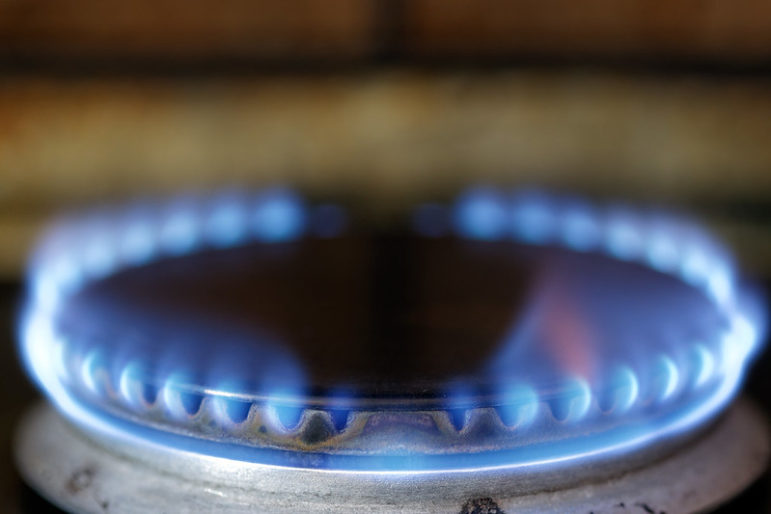The utility has asked state regulators to rewrite an agreement forged in 2019 after Gov. Cuomo threatened to yank its license over a moratorium over natural gas hookups.

Ervins Strauhmanis
Several advocacy groups along with Comptroller Scott M. Stringer on Thursday walked out of closed-door talks with utility National Grid over its bid for state approval of new rates for natural gas customers—a payment plan that critics say would fund continued use of fossil-fuel infrastructure.
Sane Energy Project, No North Brooklyn Pipeline, Alliance for a Green Economy, Sixth Street Community Center, and Newtown Creek Alliance were among the groups that ditched the confidential talks, which had been going on since June.
“Over the course of this troubled rate case, National Grid has spent over $80 million on community opposed fracked gas infrastructure, money the company presumably expects to recover by raising rates on their customers,” a statement by the coalition of groups read. “This has all happened as Gov. Cuomo’s Department of Public Service has allowed the proceeding to undemocratically drag on for months behind closed doors.”
They are also upset about a proposed amendment to a 2019 settlement agreement between National Grid and the Public Service Commission. That resolved a standoff between the utility—which had imposed a moratorium on new natural gas hookups and cited concerns about gas supplies in light of the state’s moves to reduce the flow of fossil fuels—and the Cuomo administration, which threatened to yank the utility’s license over the moratorium.
The proposed amendment would allow National Grid to divert a planned $20 million clean energy fund to instead pay for “important energy efficiency and demand response programs while minimizing the impacts on customers’ bill during the challenging economic circumstances caused by the COVID-19 pandemic.”
Department of Public Service staff have approved the request and it is now being considered by the Public Service Commission, according to a DPS spokesman.
“The amendment to the settlement will allow us to fund significant investments in energy efficiency and demand response programs to reduce natural gas usage and support our customers’ energy needs, and mitigate the costs of these important programs during the challenging economic circumstances caused by the COVID-19 pandemic,” Karen Young, a spokeswoman for National Grid, tells City Limits.
But in a letter to the commission, critics called the proposed move “an affront to ratepayers.” While energy efficiency is a valid goal, the letter argued, the settlement already set aside funds for that. And if National Grid wanted to reduce rates for its customers, the critics said, it could simply decide against building the new natural gas infrastructure it has proposed in the pending rate case.
What’s more, “It is clear that the settlement was intended to be partly punitive, which is to say that the fines levied therein should be felt by the Companies as such—as an extreme inconvenience intended to dissuade it from engaging in future reckless behavior,” the letter read. “By allowing those fines to be shifted out of this punitive realm … [to] be used to pay for the Company’s own energy efficiency programs, the Commission would essentially be mitigating the punishment by allowing the company to apply it in a manner that suits convenience.”
A March 8 report by an independent monitor who was appointed under the settlement was sharply critical of National Grid. “Despite improvements made and in progress to date, National Grid has not remedied the organizational weaknesses that resulted in the earlier improvident moratorium and the Settlement some 16 months ago,” it reads.
Murphy is the 2021 Wayne Barrett Fellow with Type Investigations









2 thoughts on “National Grid Wants to Divert Clean Energy Funds as Advocates Ditch Settlement Talks”
Critically important information NOT in this story: the percentage of NYC’s current reliance on natural gas for heating, hot water, and cooking. (Also, in some commercial instances, cooling; yes, it works.) This applies to both residences and businesses. HVAC equipment, hot water heaters, stoves, etc., all tend to be reliable and have lives measured in decades and scores of years.
That’s-the-way-we’ve-always-done-it doesn’t mean that’s the way we should continue to do it. With new sources of more-environmentally-friendly electricity projected to come on line, it makes sense to consider requiring that when these sources of electricity are available, new construction and renovations should rely on electricity for HVAC, hot water, and cooking. But natural gas WILL continue to be used for a long time.
I’m not endorsing or suggesting expanding NYC’s current natural gas infrastructure, but because of how natural gas continues and will continue to be relied on in NYC (and for obvious safety reasons), its natural gas infrastructure must be maintained; not expanded, but responsibly maintained.
I believe that National Grid should be prosecuted as a Racketeer Influenced and Corrupt Organization under federal RICO statutes.
The refuse to talk with customers. They steal confidential information. They NEVER answer letters.